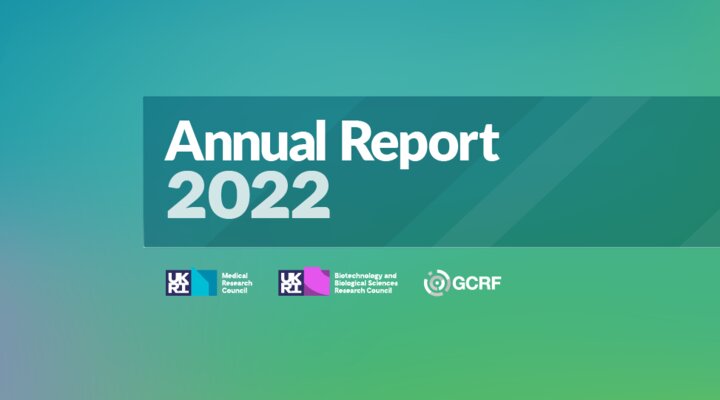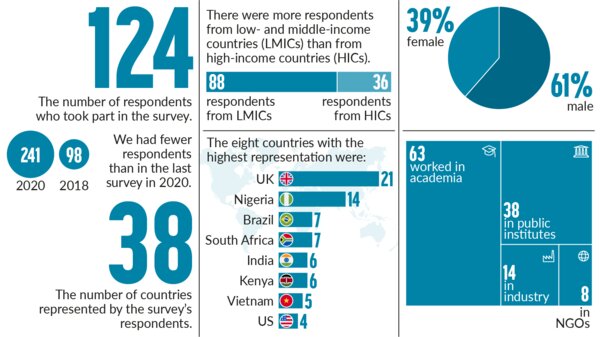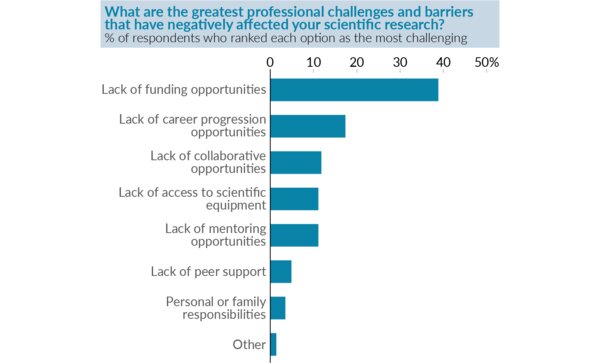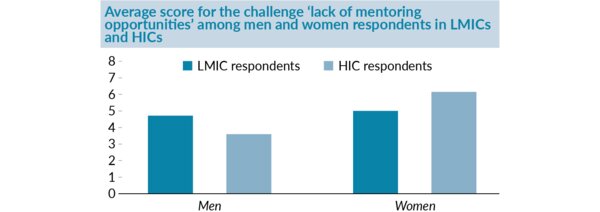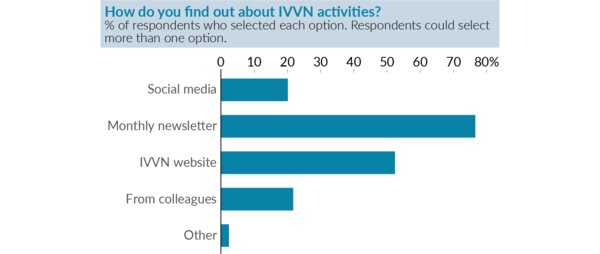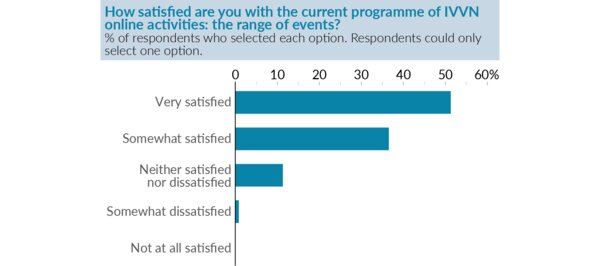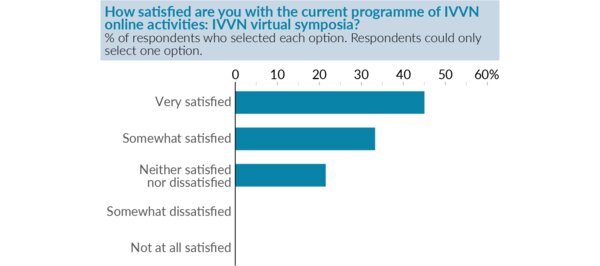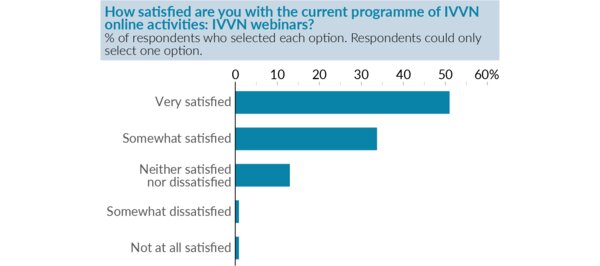Results of the 2022 Members' Survey
Since 2018, the IVVN has held biannual surveys of its members. The third and latest of these members’ surveys was held earlier this year.
The survey comprised a series of multiple choice, ranked choice, and free text questions, and was hosted on an online questionnaire platform (Online Surveys by Jisc) licensed by the University of Edinburgh. Members were sent a link to complete the survey with the IVVN newsletter in February, March and April 2022, and twice in a direct email.
A total of 124 members – around 8% of the membership – filled out the questionnaire over the nine-week open period of the survey. Fewer members completed this survey than the last survey in 2020, when 241 members took part.
Figure 1 shows some demographic information on the survey’s respondents. Just over three fifths of these respondents were male and two fifths female, which is similar to the gender ratio of the IVVN membership as a whole. The respondents were distributed across 38 countries, with the highest representation from the United Kingdom, Nigeria, Brazil and South Africa. More than seven in 10 of the respondents were from a low- or middle-income country (LMIC), which is slightly higher than the overall LMIC representation of the network membership (64%). The majority of members worked in academia (63) or in a publicly owned organisation (38), while a small number worked in industry (14) or at a non-governmental organisation (8).
Challenges and barriers
We asked survey respondents about the challenges and barriers that had affected their work. Respondents were presented with a series of common challenges highlighted by previous IVVN surveys and asked to rank them from the most to least challenging. Many of the options reflect areas the IVVN is currently working to address, while others relate to possible future activities. Respondents were also given the opportunity to write in other challenges/barriers they had faced.
| What are the greatest professional challenges and barriers that have negatively affected your scientific research? Please rank the options according to how much of a challenge they have presented, from most to least challenging. |
|---|
To analyse the results, respondents’ choices were assigned a score from 8 (most challenging) to 1 (least challenging). The average score for each of the options is shown in table 1.
| Challenge | Average score |
|---|---|
| Lack of funding opportunities | 6.7 |
| Lack of collaborative opportunities | 5.5 |
| Lack of access to scientific equipment | 5.3 |
| Lack of career progression opportunities | 4.9 |
| Lack of mentoring opportunities | 4.7 |
| Lack of peer support | 4.5 |
| Personal or family opportunities | 3.1 |
| Other | 2.3 |
We also looked at the number of respondents that selected each option as their top challenge (figure 2).
The option with the highest average score, and the one chosen as the top challenge by the most respondents, was ‘Lack of funding opportunities’. Funding availability has also been the most commonly cited challenge in our previous surveys and, while the IVVN will continue to make as much funding available to members as we can through our catalyst funding schemes, this is likely to remain a challenge.
Access to collaborative opportunities and to scientific equipment were also challenges that scored highly among respondents. Increasing collaboration between members is one of the core objectives of the IVVN, and one we hope we can build on in the next funding phase of the Network with improvements to our members’ database and more in-person networking opportunities.
The average score of the challenge ‘Lack of access to scientific equipment’ was higher among respondents in LMICs (5.4) compared with those in high income countries (HICs) (3.5). The IVVN was looking to establish an equipment exchange programme before the Covid-19 pandemic, and this is something we may look at again in the coming months.
Lack of career progression opportunities was another challenge that scored relatively highly. This challenge was also highlighted in a recent report on the UK veterinary vaccinology research landscape, which was jointly published by the IVVN and the British Society for Immunology.
In previous years’ surveys, ‘lack of mentoring opportunities’ has been particularly described as a challenge by women respondents in LMICs, and this information was used to establish the IVVN Fellowship programme for women postdoctoral researchers in LMICs. In the 2022 survey, however, there was little difference between the average scores assigned to this challenge by LMIC-based men (4.7) and women (5.0), while the highest score was from HIC-based women (6.2) (figure 3). It should be noted that the methodology used was different from previous surveys, when respondents were simply asked to select all applicable challenges without ranking them. It is also difficult to draw meaningful conclusions when the numbers of respondents in each aggregated set is so small. However, there may be a need to look at additional ways we can offer mentor-based support for all our members.
We also gave respondents a text option where they could write additional challenges they had faced. Common themes raised here included access to training opportunities, the burden of administrative responsibilities, and access to specialist animal testing facilities.
Which IVVN activities do members find most valuable?
The IVVN has offered a wide range of activities and opportunities to its members since launching in 2017. Some of these activities have been in place since the start of the Network, while others have developed in response to member feedback, including from past members’ surveys.
To gauge how members feel about our current programme of activities, we asked respondents to rank seven options from most to least valuable.
| Please rank the IVVN’s current activities according to how valuable you find them as a member. Rate the activities from most to least valuable. |
|---|
Please rank the IVVN’s current activities according to how valuable you find them as a member. Rate the activities from most to least valuable.
We assigned a score to each ranking of decreasing perceived value from 7 to 1. The average scores for these options are shown in table 2.
| Activity | Average score |
|---|---|
| Online events | 5.8 |
| Online training courses | 5.2 |
| Monthly newsletters | 5.1 |
| Catalyst funding schemes | 5.0 |
| Listings for events, jobs, funding opportunities, etc | 4.9 |
| Fellowship programme | 3.9 |
| Searchable members’ directory | 3.9 |
The activity that scored highest among respondents was the online events programme, which is a new activity developed partly in response to member feedback, and partly in response to Covid-19’s impact on travel. These online events have included webinars, symposia and workshops. Given that a large proportion of the Network Management Team’s time since mid-2020 has been spent developing this programme, it is reassuring to see that survey respondents value these events.
The average scores from this question for our online training courses, monthly newsletters, catalyst funding schemes and listings of externally advertised activities were all moderate – between 4.9 and 5.2. Our programme of online training courses is another new activity that we have made available to members since our last members’ survey. Separate feedback from participants at each of the courses has also been very positive.
Given the targeted nature of the IVVN Fellowship programme, it is unsurprising to see the lower average score for this activity among survey respondents as a whole. However, separate feedback from those who have received funding from this programme has been much more positive, and IVVN Fellows recently discussed how the programme has benefited their scientific research and career development at a special online event.
Finally, the searchable online directory did not score as highly as most other activities. We believe that this directory can help address the challenge of finding new collaborative opportunities in veterinary vaccinology. However, this feedback suggests that improvements to the directory’s content and functionality are necessary to help make this happen.
We also asked members if they could name other IVVN activities they had found valuable. Common activities listed here included in-person conferences, travel grants for attending conferences and content advertised on social media.
How do members find out about IVVN activities?
We use a number of different channels to reach our members. As part of the survey, we asked respondents through which of these channels they usually found out about our news and activities.
| How do you find out about IVVN activities? |
|---|
More than three in four respondents said they did so through the monthly newsletter (figure 4). It should be noted that the monthly newsletters, and additional email correspondence sent to the same mailing list, were the main channels used to distribute this survey. However, the newsletter’s popularity as a dissemination tool is supported by website analytics data, which shows that most traffic to news and events pages is generated from newsletter clicks.
Members’ views on the IVVN online events programme
We dedicated a section of the survey this year to our new online events programme, which has been our main networking activity since early in the Covid-19 pandemic. Most respondents (86%) said they had attended at least one IVVN online event since September 2020, whether that was a webinar (69% of respondents), virtual symposium (32%) or training course (24%).
| How satisfied are you with the following aspects of the current programme of IVVN online events: (1) The range of events? (2) IVVN virtual symposia? (3) IVVN webinars? |
|---|
When asked about the range of online events offered (figure 5), 88% of those who had attended an event said they were either somewhat or very satisfied with the programme. One respondent was somewhat dissatisfied but did not offer additional feedback.
These high levels of satisfaction with the online events are encouraging, given the important role they have played in bringing the IVVN community together online. We hope to continue these events on a regular basis.
In addition to the satisfaction questions, we also asked members how they thought our online events could be improved.
| What could the IVVN do to improve our online events programme? |
|---|
Suggestions from respondents included:
- Calls for more interactivity during and after the webinars.
- More African/LMIC presence.
- Compiling related resources to accompany webinars and share with attendees.
Some respondents also suggested that the timing of the online events should be altered to be more convenient for their local time zone.
Respondents also suggested other types of online events the Network could host, in addition to those currently offered.
| Which additional online activities and opportunities would you like to see the IVVN offering? |
|---|
Activities suggested included:
- Training workshops focused on specific scientific techniques.
- Discussion or focus groups.
- Informal ‘getting-to-know-each-other’ events, such as online coffee mornings.
- A conference/symposium for early career researchers.
- CPD-type courses that members can take in their own time.
Finally, we asked members to write what major topics in veterinary vaccinology they would like to see covered by our online events.
| What do you feel are the current major issues in vaccine development that the IVVN could be addressing through our online events programme? |
|---|
The key themes in these responses were:
- Development of veterinary nucleic acid vaccines, especially mRNA vaccines.
- The role, use and development of adjuvant technology.
- Autogenous vaccines.
- Interactions between academia, industry and veterinary medical product regulators.
- One Health approaches to vaccine development.
- Vaccine approaches that allow differentiating infected from vaccinated animals (DIVA).
- Mucosal vaccine development.
- Vaccination that targets wildlife (eg TB and rabies vaccine programmes).
- Vaccines for food safety.
- Technological talks from scientists working at small and medium-sized enterprises.
All these suggestions will be useful in improving what we offer and in developing our programme of upcoming events.
Other activities the IVVN can offer
We asked members what additional activities they would like to see the IVVN offer in the future. We did not provide options here – respondents could make any suggestion they wanted. The most common requests were for the reintroduction of activities we have held in the past but have been unable to offer since 2020 because of funding limitations and the Covid-19 pandemic:
| What new activities or opportunities would you like to see from the IVVN in the next three years? |
|---|
- Pump-priming funding (13 respondents suggested this as an activity they would like to see offered).
- Laboratory exchange-style funded visits (suggested by 11 respondents).
- In-person conferences (suggested by 11 respondents).
The first two are both activities we hope to offer again once we have the funding available to do so. We are also hoping to run an in-person or hybrid conference in the coming months as Covid-19 restrictions ease worldwide.
Other suggestions made by members in response to this question included:
- Training opportunities. Some specified a preference for in-person training courses here, while others preferred to see more online training.
- Establishing a mentoring platform or programme.
- Building links with industry.
- A database of veterinary vaccinology information.
- More webinars.
A mentoring platform, such as one that pairs up early career researchers with established researchers for advice, or a chat-based community where members can answer each other’s questions, could help address the mentorship and career development challenges identified in the first question. Other suggestions reflect areas already under consideration or development by the IVVN team, such as building better links with industry and developing a database of vaccinology information.
Conclusions
The positive nature of the responses and comments suggest that members value being part of the Network. The enthusiasm for more networking and training activities in particular reflect work we propose to include in the next phase of the Network:
- In-person or hybrid conferences.
- Continuation of the online events programme.
- Early-career researcher symposium.
- Expansion of the training courses.
As evidenced by the large proportion of respondents who had attended an IVVN online event, it is likely that only the most engaged IVVN members completed this year’s survey. We hope that future Network improvements will help engage more of the membership:
- Website and directory improvements.
- Engagement with industry on the development of a veterinary vaccinology database.
We have also previously seen greater levels of member engagement during catalyst funding application periods.
We are grateful to all members who completed the survey for taking an interest in the future of the Network and in helping us develop and improve our future work.
If you missed your chance to complete our survey this year, you don’t need to wait for the next one to tell us what you think. We always welcome feedback from members – simply get in touch by emailing IVVN [at] roslin [dot] ed [dot] ac [dot] uk (subject: Feedback) .
